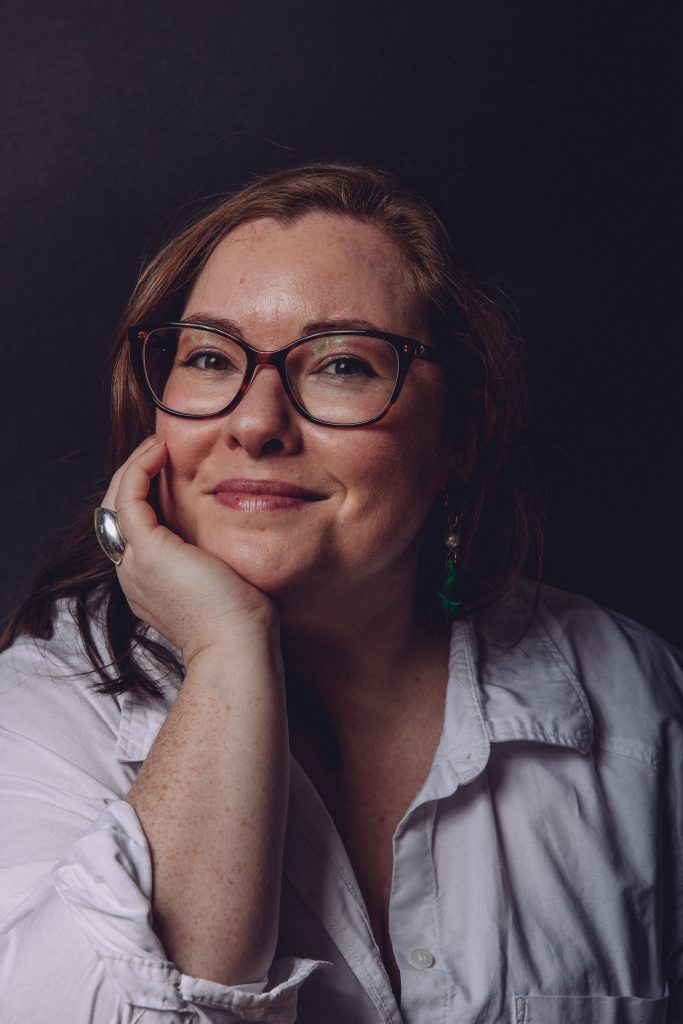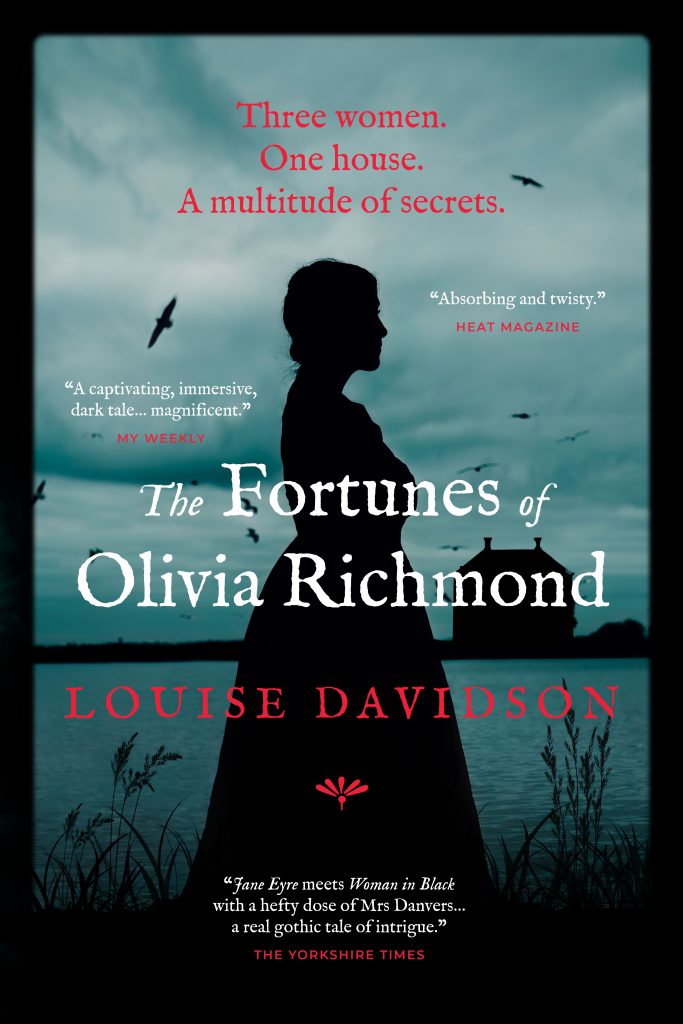Book chat with Louise Davidson
28th October 2024
Amanda Loose chats to Louise Davidson about her debut novel, The Fortunes of Olivia Richmond, studying in Norfolk and gothic fiction
At once a riveting gothic read and a haunting coming of age tale set in Victorian Norfolk, inspired, in part, by a visit to Blickling Hall, The Fortunes of Olivia Richmond is as compelling as it is chilling. As the nights pull in, draw the curtains and prepare to be drawn in…
Tell us about The Fortunes of Olivia Richmond
When governess Julia Pearlie experiences a tragedy in her previous position, she must accept whatever work she can get and so becomes an etiquette coach to Olivia Richmond at her family home, Mistcoate House, in Norfolk. Olivia believes she can speak to the dead and her father, Dr Richmond, would like Julia to convince her that she can’t. However, the more Julia tries to disprove Olivia’s powers, the more she begins to wonder if they are real.
When creating the characters, even though I thought of Olivia first, Julia solidified in my mind much more quickly. Her desire to atone for past wrongs whilst also actively running away from them is something I think a lot of people can relate to.

I also thought of her as a less moral Jane Eyre figure which was really fun to write – she still has some of Jane’s heroic qualities, her kindness, her loyalty, her genuine admiration of others, but she is more self-serving and spoilt than Jane was able to be. Similarly, Olivia’s character became much clearer once Julia was clear because in a way, she shares a lot of traits with Julia and that is what makes them such an intriguing pair. It is like Julia is confronted with the ghost of herself in Olivia and must confront it.
The novel’s settings – Mistcoate House and nearby Fellwick – feel like really isolated, haunted places with many of their inhabitants ‘broken’ people…
I really wanted to emphasise the tension between comfort and uncertainty and fear in the world of the novel. Fellwick is very much a mixture of the darker parts of small towns that I have visited, lived in, or stayed in over the years. Much like people, places always have a shadow self that they want to keep hidden but tends to come out anyway and that was what I was exploring with Fellwick.
For me, gothic fiction is at its best in small communities because they are often places with their own specific social rules and gothic literature is all about transgression and breaking those rules. If you are living in a small community where everyone knows everyone, how does anything really stay hidden? This is where the idea of the ‘broken’ people comes from – Fellwick is full of people harbouring secret desires, resentments and rages but they suppress them, causing them to leak out in explosive ways.
I then shrunk this down even further by focusing on the world of Mistcoate House and its small community of the Richmonds and their servants, all of whom are really wanting to hide their shadow selves. It creates a claustrophobic, tense atmosphere that really increases the pace of the novel. In a small town, someone’s transgression may be nothing more than a source of local gossip, but in a household, it can shatter everything.
‘I also thought of Julia as a less moral Jane Eyre figure which was really fun to write – she still has some of Jane’s heroic qualities, her kindness, her loyalty, her genuine admiration of others, but she is more self-serving and spoilt than Jane was able to be.’
Louise davidson
Why did you choose Norfolk as the setting?
I studied English with Creative Writing modules at UEA in Norwich and it was there that I fell in love with theatre as well. I had always written stories, but I think my time at UEA was when setting began to loom large in my mind.
I had never been to Norwich before I moved there to begin my three-year course, but I instantly fell in love with the city. I had also never lived outside Northern Ireland before and so much of Norwich reminded me of Belfast. From the river to the terraced houses, to the way the countryside seemed to creep right into parts of the city, it all made me feel very much at home – which is ironic, considering Fellwick! But there are parts of Norwich and Belfast in Fellwick, although it is a much smaller place, and I realised later that the local hubs of the public house and the church loom large in the book and when I was studying there, Norwich was said to have a church for every week of the year and a pub for every day of the year so I think that influenced my choice there.
At one point during my time at UEA, I visited Blickling Hall with my parents during a cold, foggy late morning, and I remember so clearly the way the fog moved across the roof and the way the drizzle sparkled on the windows, and it was so beautiful but so dark and imposing. My knowledge of the gothic was still burgeoning at that point, but my mind has gone back to it repeatedly with my choice of settings. Ironically, again, a lack of funds meant that, once I graduated, I had to leave Norwich and return home, much like Julia at the beginning of the novel.
Why do you think country houses are central to many gothic novels and which gothic novels have inspired you?
Country houses are fantastic places for gothic novels because they are remote, isolated places full of dark corridors, locked rooms and shadowed staircases. Where better to set a gothic novel? But not just that, there are also large places that require lots of people which makes them even more eerie when they are somewhat empty – or when everyone living there knows something dark is happening and are too frightened to confront it. I read Jane Eyre for the first time at university and that has really inspired me and comes out in my work in a multitude of ways, but I also love Shirley Jackson’s The Haunting of Hill House, which is genuinely terrifying, and whilst it may be more horror than gothic, Stephen King’s The Shiningstill looms large in my mind as one of my first examples of big houses – albeit, a hotel in this case – that seemed to have a dark and murderous mind of its own.

What next?
I am writing a second gothic novel and this time I am setting it in 19th century Ireland. Whilst it is still in progress, it has been such a journey to write about home, especially as so much of Victorian Irish history is political but my focus is once again on a small community and its transgressions. I won’t say too much just yet, but it is exciting to explore what this looks like in an Irish cultural setting, and this time, I am staying in town!
Louise Davidson’s debut novel The Fortunes of Olivia Richmond was published in paperback on 17th October by Moonflower Books, just in time for Halloween. It’s available from all good bookshops at £8.99; www.moonflowerbooks.co.uk/the-fortunes-of-olivia-richmond





